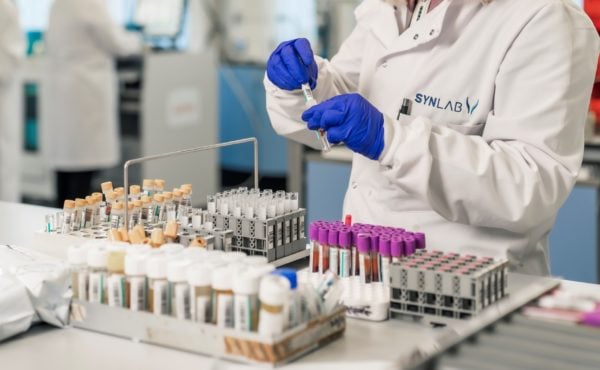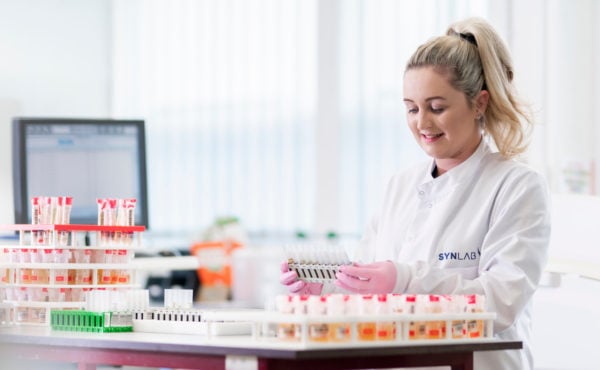Published: 20th February 2019
Drug driving is a current focus for police in England and Wales. Figures from the National Police Chiefs’ Council Data suggest an increase in drug driving incidents from 2017, further showing that 57% of tests came back positive from samples collected at the roadside during the 2018 summer crackdown of 38 police forces.
The Health & Safety Executive’s (HSE) Driving at Work Guidelines state that “health and safety law applies to on-the-road work activities and the risks should be effectively managed within a health and safety system.”
At SYNLAB Laboratory Services we are committed to working with customers to safeguard their people and business. With drug driving reportedly on the rise, we are urging employers to raise awareness about the dangers of drug driving to and from work, during work and while operating machinery in the workplace using the following measures:
Reinforce the Dangers
It’s important to reinforce both the dangers and effects drug driving can have on people and the business.
According to The Royal Society for the Prevention of Accidents (RoSPA), driving is the most dangerous work activity most people do and contributes to more accidental deaths and injuries than all other work-related activities. The RoSPA also state that, according to police road accident data, over 500 people are killed and almost 45,000 are injured in collisions involving people who are driving for work every year.
Dependent on the drug taken, it can affect a driver by causing; slower reactions, poor concentration, distorted perception and coordination, lack of judgement, blurred vision or aggressiveness. Ability to drive can also be impaired during the comedown phase after using a drug. There can be devastating consequences if an individual decides to drive whilst impaired.
Communicate the Law, Limits and Penalties for Both Legal and Illegal drugs
In England and Wales it is an offence to drive, attempt to drive, or be in charge of a motor vehicle with certain drugs in the body above a specified limit. This applies to illegal drugs, prescribed medicines and over-the-counter medicines.
The law adopts a zero tolerance approach to eight illegal drugs, a balanced approach to amphetamine, which can be prescribed and a road safety risk based approach to eight common medications.
In addition to the specifications, the Road Traffic Act 1988 states that anyone driving while unfit through drugs, whether illegal or prescribed or over-the-counter medicines, can still be prosecuted. The Police can conduct roadside tests to help them identify if a driver may be impaired. The penalties for drug driving are:
- a minimum 1 year driving ban
- an unlimited fine
- up to 6 months in prison
- a criminal record
- a driving licence will also show a conviction for drug driving and will last for 11 years.
- the penalty for causing death by dangerous driving under the influence of drugs is a prison sentence of up to 14 years.
If a drug driver is driving for the company at the time of the incident there is a risk of adverse publicity for the company.
Understand Your Testing Options
At SYNLAB Laboratory Services, we offer several testing options for drug detection in the workplace. These include:
Urine: Around 95% of the organisations we work with use urine testing as their sample of choice. Within the workplace urine is considered to be the gold standard across the industry as it’s highly reliable, easy to collect and analyse. Urine is also the easiest sample medium used for cannabis detection – the most commonly abused substance within the UK.
Saliva: Particularly useful in situations where toilet facilities are not readily available, saliva testing is an unobtrusive method, commonly used within the workplace to screen for drugs of abuse. With a narrower window of detection, saliva is used to look for use within approximately the past day or two.
Near Donor Testing: We can provide near donor testing for screens with back to laboratory confirmation or back to laboratory for screening confirmation. Confirmation results are legally defensible.
These testing methods can be used for random testing, periodically and if there is cause for reasonable suspicion or following an incident. Having a watertight policy in place which covers these areas of testing can act as a preventative measure for the use of both drugs and alcohol whilst at work and can also dramatically reduce the likelihood of accidents in the workplace.
The above options are also available for pre-employment testing, which can introduce an element of objectivity into the hiring process.
Raise Awareness
Even with a policy in place, we recommend customers undertake regular reviews and training sessions to ensure it still meets business needs and is being implemented correctly.
In addition to this it’s important that employers raise awareness and improve their employee’s knowledge around the policy and any high risk areas – in this case the dangers of drug driving particularly those in safety critical roles.
There are a number of ways our customers do this depending on the business and subject matter:
- Using posters and leaflets
- Through company-led group sessions
- Using dedicated training sessions with our experienced team
To find out more about how SYNLAB Laboratory Services can support you with a Policy and Drug & Alcohol testing solutions, call us on 01873 856688 or email [email protected] or click here for further information.




